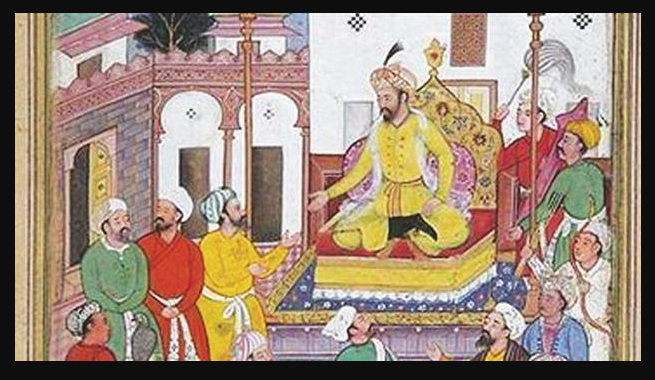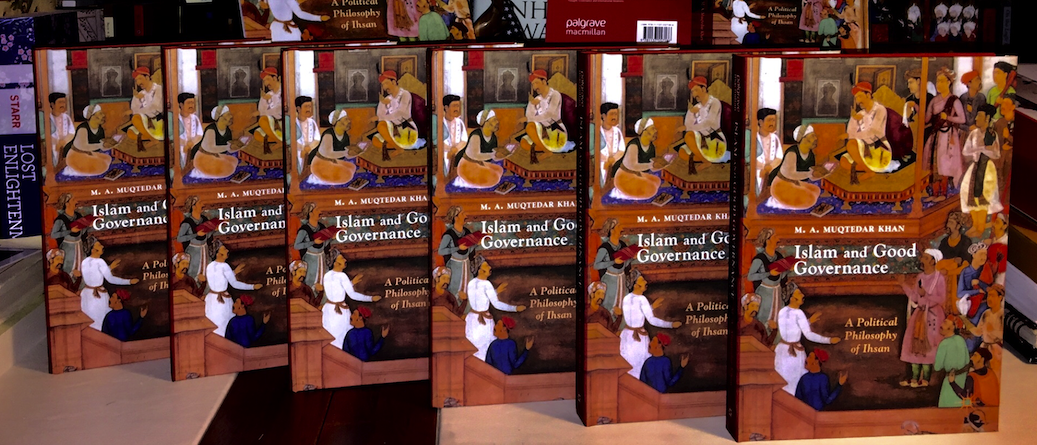Shura and Democracy
By Dr. Muqtedar Khan
Many Western scholars have maintained that the singular reason why the Muslim World remains undemocratic is Islam. It is quite amusing how these scholars assume that Muslims actually live by Islamic values? But a recent book by John Esposito and John Voll, Islam and Democracy (London: Oxford University Press, 1996), argued that Islam and Democracy were indeed compatible and the reasons for the perpetuation of authoritarianism in the Muslim World in general and the Arab World in particular, lay elsewhere. The book has fired up the debate over the compatibility of Islam and democracy. Many of those who claim that Islam contains democratic principles have singled out the principle of shura to illustrate their point. In this discussion I would like to examine the similarities and dissimilarities between shura and democracy while reserving my judgment on whether Islam and democracy are compatible.
Shura is basically a decision making process — consultative decision making — that is considered either obligatory or desirable by Islamic scholars. Those scholars who choose to emphasize the Quranic verse: “..and consult with them on the matter” (3:159) consider shura as obligatory, but those scholars who emphasize the verse wherein “those who conduct their affairs by counsel” (43:38) are praised, consider shura as desirable. Remember the first verse directly addressed a particular decision of the Prophet and spoke to him directly, but the second verse is more in the form of a general principle. Perhaps this is the reason why, traditional Islamic scholars have never considered consultation as a necessary and as a legitimizing element of decision making.
What is remarkable is that the search for direct verses as proofs, and its eminent absence, has prevented Islamic scholars from reaching a decisive conclusion that shura is obligatory. So far the scholars are still debating the issue. There are those who suggest that the Prophet (pbuh) always consulted before making his decisions. But consider the decision to sign the Sulah Hudaybiyah, the Prophet (pbuh) consulted his companions but chose to act independently, clearly illustrating that consultation is non-binding. Actually there are very few instances on record when the Prophet has consulted his companions and acted upon their advise against his own wisdom. The decision to step out of Medina to engage the Meccan army is one such instance.
Thus we remain in a limbo. There is no doubt that shura is the Islamic way of making decisions. But is it necessary and obligatory? Will an organization or a government that does not implement a consultative process become illegitimate? We do not have a decisive answer to that issue. One thing is clear though, that more and more Muslim intellectuals are agreeing that consultative and consensual governance is the best way to govern. Jurists, however, remain either conservative or ambivalent on the topic. Many of them depend on non-consultative bodies for their livelihood and even their religious prestige and they are in no hurry to deprive themselves of the privileges that non-consultative governments extend to them. Thus in a way they are implicated in the delay in the public recognition that governments in Muslim societies must consult to retain their legitimacy.
But assuming that shura becomes the norm for Islamic institutions, movements and governments, does that automatically imply that democratization will follow? I am hopeful but skeptical. I do not believe that shura and democracy are the same kinds of institutions.
It is my sense that shura and democracy differ in three basic ways:
1) Unlike shura democracy allows modification of foundational texts. You can amend the constitution but not the Quran or the Sunnah. While on the face of it this does not seem like a problem, since Muslims are by definition supposed to accept the primary sources of Islam. In practice one is not dealing with the sources but the medieval interpretations of these sources and shura is for all purposes subordinated to the past understanding of Islamic texts.
2) Shura remains non-binding while democratic process and laws are binding and can only be reversed through a democratic process and not by unilateral and oligopolistic processes.
3) The way shura is discussed in Islamic discourses, it seems to me that it is something that the leader/ruler initiates and is expected to do. Shura is the leader consulting some people, it is not clearly whom, scholars, relatives, or the entire adult Ummah. Will women be consulted too? How about gays and lesbians and non-Muslims. Maybe people of these “types” can be labeled as “legal and illegal aliens,” as millions are in the US, and legitimately excluded from the Shura. This issue needs to be explored and clarified. In a democracy on the other hand is people consulting among themselves about who will govern and how. Notice how shura is top-down and democracy bottom-up.
Finally I would like to say that shura like democracy is a deeply contested notion, It is the successful and just practice and institutionalization of these ideas that counts rather than theoretical finessing. Unfortunately we do not to reflect on these issues seriously. Moreover we must include more and more Muslims in the process to make this theoretical reflection itself a shuratic process. We must however be careful not to use the debate between the similarities and dissimilarities of shura and democracy as a surrogate for concluding if democracy and Islam are compatible or not. There is more in Islam than shura when it comes to reflecting over the nature of good governance and best polities. But we shall reserve that discussion for another occasion.
It is possible for us to have a global conference involving all representative scholars to have an ijma on the nature of shura. The principle of maslaha –public interest– can be invoked to declare shura as binding and legitimizing standard for Islamic governance. But to organize such a conference requires vision. Perhaps American Muslims can provide such a vision in the near future.
Read more about Shura (pages 231-235) and how it can inform Good Governance in my latest book Islam and Good Governance: A Political Philosophy of Ihsan (Palgrave 2019). The book was selected as one of the best all time books on political philosophy by Book Authority. You can read more about the book here.











I like this web blog so much, saved to favorites. “To hold a pen is to be at war.” by Francois Marie Arouet Voltaire.